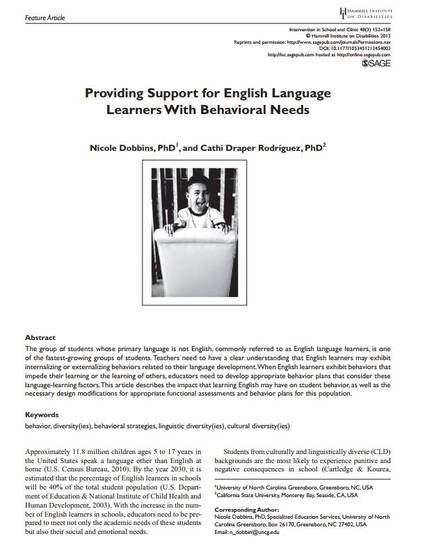
Article
Providing Support for English Language Learners With Behavioral Needs
Intervention In School And Clinic
(2013)
Abstract
The group of students whose primary language is not English, commonly referred to as English language learners, is one of the fastest-growing groups of students. Teachers need to have a clear understanding that English learners may exhibit internalizing or externalizing behaviors related to their language development. When English learners exhibit behaviors that impede their learning or the learning of others, educators need to develop appropriate behavior plans that consider these language-learning factors. This article describes the impact that learning English may have on student behavior, as well as the necessary design modifications for appropriate functional assessments and behavior plans for this population.
Keywords
- behavior,
- diversity(ies),
- behavioral strategies,
- linguistic diversity(ies),
- cultural diversity(ies)
Disciplines
Publication Date
2013
DOI
10.1177/1053451212454003
Citation Information
Nicole Dobbins and Cathi Draper Rodríguez. "Providing Support for English Language Learners With Behavioral Needs" Intervention In School And Clinic Vol. 48 Iss. 3 (2013) p. 152 - 158 Available at: http://works.bepress.com/cathi-draperrodriguez/8/
